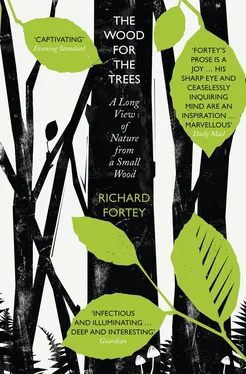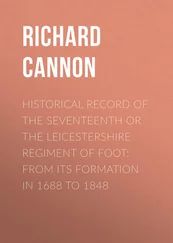1 ...6 7 8 10 11 12 ...19 According to Cecil Roberts’s account in Gone Rustic , he discovered Pilgrim Cottage in 1930 by accident after sustaining a puncture on the road from Henley to Oxford. He writes: ‘Around me the view was imposing, almost Tyrolean, with steep larch covered hillsides, and in the distance between thick beech woods nobly clothing the greensward, a ravine.’ The last may have been a reference to the gentle valley leading to Stonor. Pilgrim Cottage is still much as it was in the middle of the twentieth century. Cecil’s upstairs windows would have commanded a view of Lambridge Wood on the near skyline, so he really was a neighbour. I imagine him fussing around his garden, absorbed in his gladioli, while instructing his housekeeper to lay tea for the Marchesa, who would be arriving betimes in the Hispano-Suiza. Pilgrim Cottage, he complained, was positively deluged with visitors, all of them fascinating, making the necessary wielding of his pen a matter of some concern. In spite of all his socialising, he did manage to produce a quantity of books and much verse. The core of his Pilgrim Cottage books is provided by local history, well described, and much of it relevant to my story; and his tales of local craftsmen are invaluable. His other love is Italy, and he jumps to Venice and palazzos and the story of the Finzi-Continis at every hint of a metaphor. His interest in natural history was as perfunctory as his interest in gardening and sunbathing was obsessive. The Chilterns provided a green backdrop to his real concerns, which were always human.
Cecil Roberts had another life during the Second World War. Pilgrim Cottage and its stories had a great following in the United States. Their appeal may have been rather akin to the current popularity of sagas featuring big houses and their goings-on a century ago. Roberts was recruited to aid the war effort by giving lecture tours in America, which he evidently did with great success. The New York Times reported that ‘the best propaganda in the world is the British and the most efficient expression we witnessed were the lectures held all over the USA by the noted author, Cecil Roberts. These lectures never had the flavor of propaganda but brought more good will towards Britain than anything else.’ 4His charm could obviously do its work far away from the Thames Valley.
When the conflict was over Roberts felt he had not received sufficient official recognition for his efforts. He tried to restore the balance by publishing his autobiography in no fewer than five volumes. Rowena Emmett, daughter of Mr and Mrs Plater, the next occupants of Pilgrim Cottage in 1953, told me that for many years beaming Americans would turn up at their garden gate requesting permission for photographs. ‘It was,’ she said, ‘quite a nuisance.’ The former owner did not downplay the fame of Pilgrim Cottage. He had written to the Platers advising, ‘many thousands all over the world love it, for it symbolizes England for them’. When Rowena met Cecil Roberts she was a young schoolgirl, and she found him more than a little alarming. She later realised that his manner was just very camp. A modern reading of Gone Rambling would leave little doubt about the author’s sexual orientation, with its panegyrics to bare-chested Italian sawyers whose ‘skin, tanned a warm mahogany by the Venetian sun, gleamed and caught a hundred tones and facets of light as the muscles glided with cryptic strength beneath their satin sheaths’; to say nothing of some very ambiguous poems.
I cannot help wondering how Cecil Roberts might have been regarded by the locals in the Golden Ball in those less tolerant times. Maybe they just thought he was from London. He seems to have been genuinely helpful with his time and money in the village, and nearly always described its inhabitants sympathetically. He appreciated the efforts of his gardeners, including Charles Crewe, who lived in a damp dwelling with none of the usual services on the very edge of Lambridge Wood. Roberts was determinedly anti-fascist. I was surprised to learn that his origins in Nottingham were far from aristocratic. He was a self-made man, living mostly from his prolific pen, whose name-dropping was probably an exuberant validation of his reinvention. ‘ Mon dieu! ’ his special and amusing spinster friend Miss Whissitt might have exclaimed. ‘ Tu es une arriviste! ’
H.J. Massingham is altogether more astringent. His 1940 book Chiltern Country deals with the whole range of hills in luminous language. His feel for natural observation is superb. Much of his work is driven by fury about the spread – no, the rash – of homely villas outwards from London. He mourns the ‘real England, the England in which the hills, the vales, the waters, the crops, the roads, the buildings, the natives and the rock that bore them up all on its back were intricately bound together in an organic system not unlike the human body’. 5The country cottages that have withstood the centuries – and the worthy souls who have earned their living around them for as long – are becoming overwhelmed by red-brick mediocrities planted about with shrubs that don’t belong. Beech woods become desirable scenic accessories rather than essential resources. For Massingham the country beyond Rickmansworth was irretrievable, and the country around High Wycombe was doomed. The spread of the Metropolitan Line from London into the hills was a sinister fungus that sprouted despicable edifices – suburbia: ‘the touch of it annihilates identity in place’. His ruralism stands at the other extreme to the poet John Betjeman’s sympathetic regard for what he termed ‘Metroland’, a land of healthy young women and clean semi-detached gentility.
Massingham’s combativeness is quite appealing. I think he would fain have jumped back in time way past the Enlightenment to fetch up somewhere in the late medieval period. He reserves his most eloquent writing for our piece of country, and most particularly Stonor Park, ‘the heart of the Chilterns’, where the wild spirit of the place has not yet been ousted, the views not hopelessly corrupted with eyesores. I have no proof that he ever visited our woods, but I hope he would have found the genius loci satisfactory there, too. I am certain he would have disapproved of the practice of ‘splitting’ to sell off ancient woodlands, thereby dividing the integrity of manors that had been in existence for nearly a thousand years. There is no defence, except to say that I could never have afforded to buy a whole stretch. There are plenty of very wealthy people in the hills who don’t appreciate the unique treasures they have on their land, and my small patch is much loved.
Just over a century before Cecil Roberts was pottering around his garden in Lower Assendon, John Stuart Mill was exploring our Chiltern countryside with a far more scientific enthusiasm. The philosopher and political theorist was equally a dedicated and scholarly botanist. Very few people can instantly recognise rare plants like wintergreens ( Pyrola ), but J.S. Mill was one of them. From his early days he was a close friend of George Bentham (nephew of Jeremy), who would become one of the greatest botanists of the Victorian age. Mill made an expedition in France in search of poorly known flora. His house in Kensington Square in London was virtually a herbarium. Some people who are not naturalists find it odd that famous thinkers, poets or mathematicians might derive as much pleasure from the minutiae of natural history as from the fields of endeavour that made them famous. Vladimir Nabokov was as serious about blue butterflies as he was about writing novels, but certain critics relay this fact as a kind of eccentric footnote to the life of the artist. Doubtless they perceive that less time frittered away with the butterflies might have resulted in one or two more novels. Can they not see that the taxonomic eye applied to recognising the subtlest nuances of difference in butterflies is the same eye that spots the deceptions and evasions in human motivation? The capacity to make accurate observations is a special genius, and it is not limited to focusing on one particular bipedal subject species.
Читать дальше












